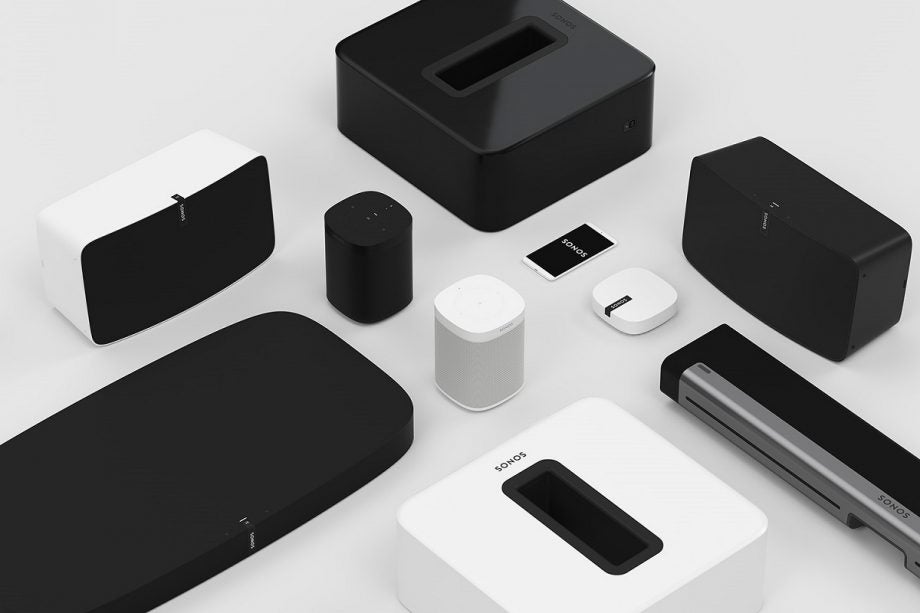Why Sonos is suing Google − and what it could mean for customers

Sonos is taking legal action against Google in two federal courts in the US, on the basis that it has allegedly infringed on five Sonos patents – a claim the search giant denies. It’s one of the biggest stories in tech at the moment, but what’s actually going on? Read on for all the details of the fallout, and what effect this could have on the consumer tech market.
The crux of the issue is that Sonos has accused Google of ripping off its multi-room technology. The speaker company has even gone as far as saying that “the Google Home was recognised as a direct attack on Sonos”. As a result, Sonos wants financial reparations and a ban on the sale of Google speakers, smartphones and laptops in the US (via New York Times).
Those are some pretty serious demands.
Related: Best multi-room speakers
Specifically, the firm alleges that back in 2013 it and Google signed off on a partnership agreement that gave the Android maker access to Sonos speaker blueprints. Then, in 2016 − shortly after the announcement of the Google Home Smart Speaker − Sonos allegedly warned Google several times that it was infringing on its copyright.
Sonos alleges that: “Google copied key features from Sonos. These features include, for example, Sonos’s patented technology for setting up a playback device on a wireless local area network, adjusting group volume of playback devices, and synchronizing playback of audio within groups of playback devices.”
Sonos told Trusted Reviews: “Google is an important partner with whom we have collaborated successfully for years, including bringing the Google Assistant to the Sonos platform last year. However, Google has been blatantly and knowingly copying our patented technology in creating its audio products. Despite our repeated & extensive efforts over the last few years, Google has not shown any willingness to work with us on a mutually beneficial solution. We’re left with no choice but to litigate in the interest of protecting our inventions, our customers, and the spirit of innovation that’s defined Sonos from the beginning.”
According the The New York Times, Sonos has privately harboured annoyance with Google for years, but over the last few months the annoyances grew too serious to ignore. Patrick Spence, Sonos’ chief executive, decided enough was enough and it was time to take action.
Spence told The Verge: “Google is an important partner with whom we have collaborated successfully for years, including bringing the Google Assistant to the Sonos platform last year. However, Google has been blatantly and knowingly copying our patented technology in creating its audio products… Despite our repeated and extensive efforts over the last few years, Google has not shown any willingness to work with us on a mutually beneficial solution.”
Equally, he told the US paper, Sonos would like to take action against Amazon on similar grounds, but the company can’t afford to take on both tech behemoths at once.
Sonos’ gripe with Google goes beyond the technology and into the way it does business too.
As another particularly pointed section in the legal complaint filed by Sonos argues: “The harm produced by Google’s infringement has been profoundly compounded by Google’s business strategy to use its multi-room audio products to vacuum up invaluable consumer data from users and, thus, further entrench the Google platform among its users and ultimately fuel its dominant advertising and search platforms. In furtherance of this strategy, Google has not merely copied Sonos’s patented technology, it has also subsidised the prices of its patent-infringing products, including at the entry level, and flooded the market. These actions have caused significant damage to Sonos.”
We have to reiterate here that Sonos’ allegations are nothing more than allegations at present, and it will be up to the courts to decide whether Google has actually done anything sufficiently wrong.
The way Sonos argues it is interesting though. Essentially, the fact that Google values data gathering and chances to advertise to consumers gives it different incentives in the smart speaker market, according to Sonos. By that school of thought, if Google knows more about you and can advertise to you in your own home through your Google products, then it can make more money from you in the future.
Meanwhile, Sonos claims that it just wants to sell you a nice speaker and make its money that way.
What difference does this variation in business strategy make? Well, theoretically it means that Google can afford to reduce the price of its speakers more than Sonos can, because there are incentives for the search giant to get Google speakers into as many homes as possible. This has the knock-on effect of potentially turning consumers away from more expensive Sonos products.
Related: Google Home vs Amazon Echo
The alternative for Sonos is reducing its own prices, which could make its business less profitable.
We can see why Sonos is going in hard on Google, and it will be interesting to see the case unfold. If the ruling goes Sonos’ way, could it embolden others to take similar forms of action against tech’s biggest beasts?


